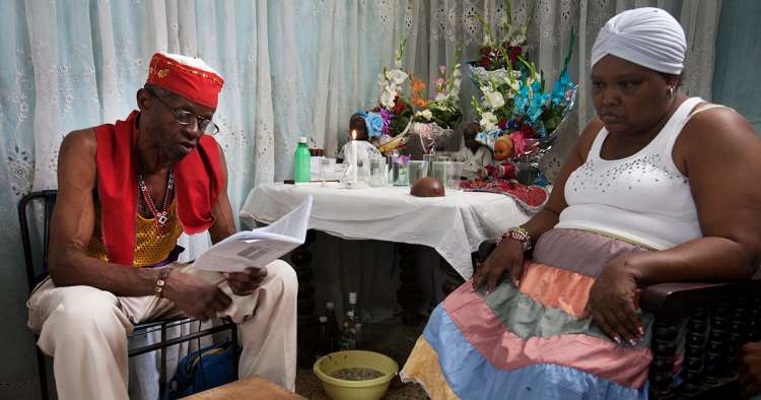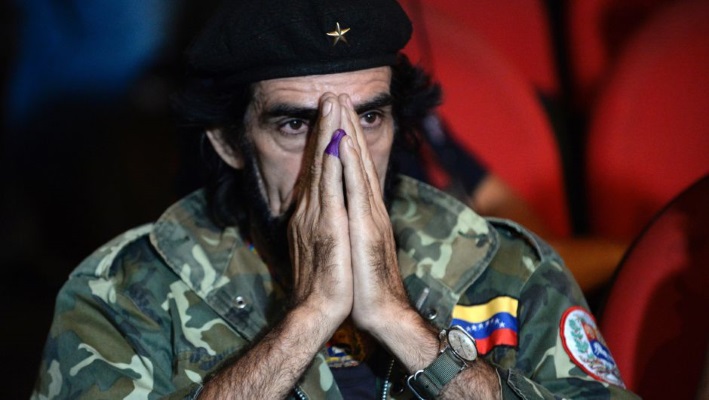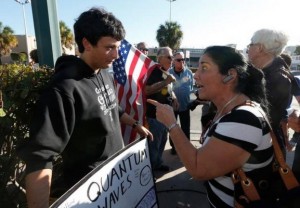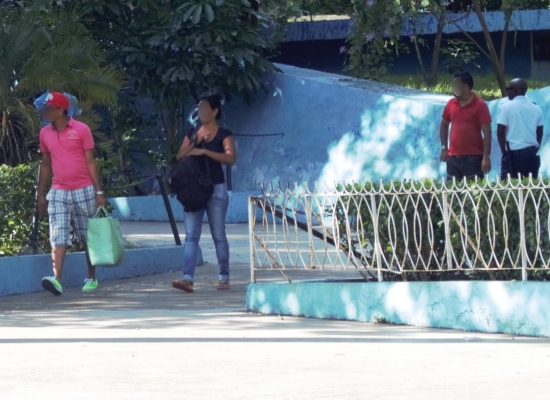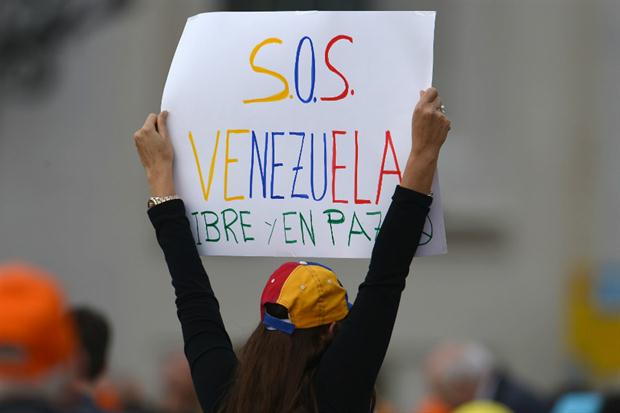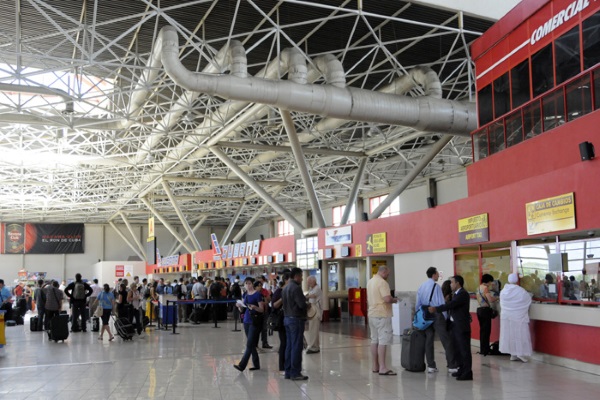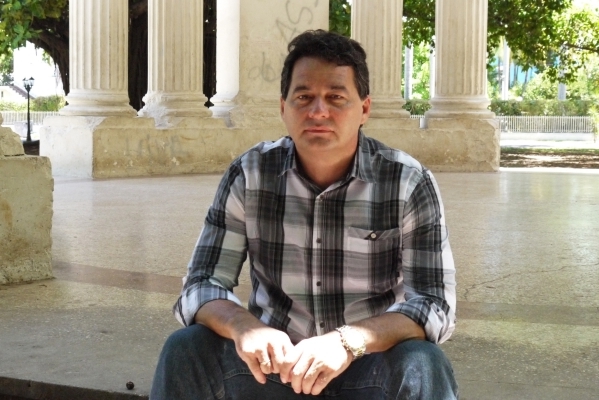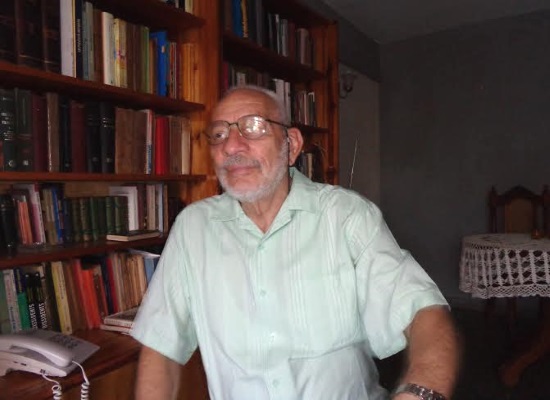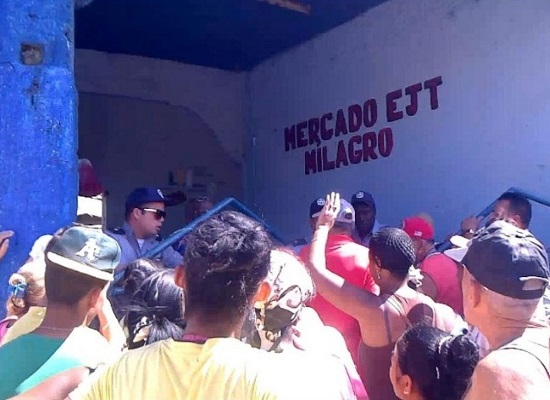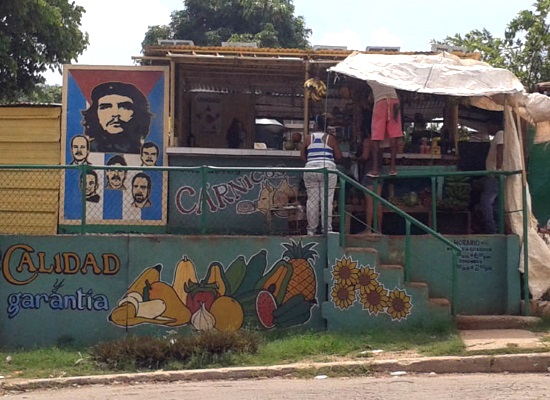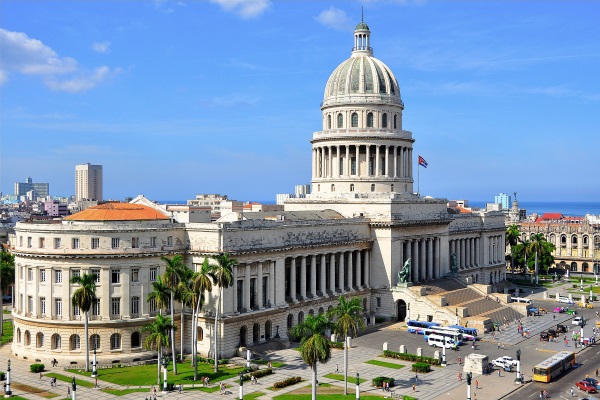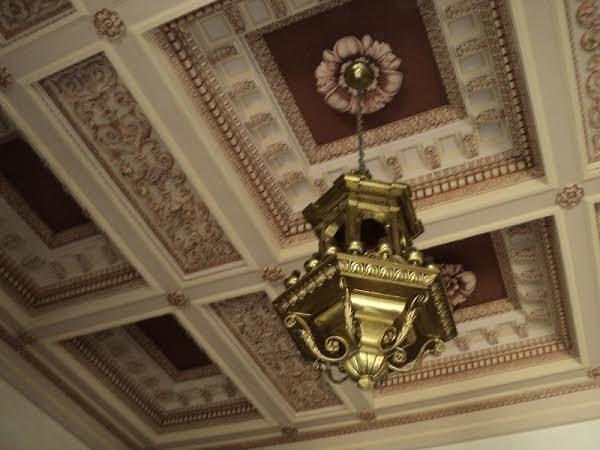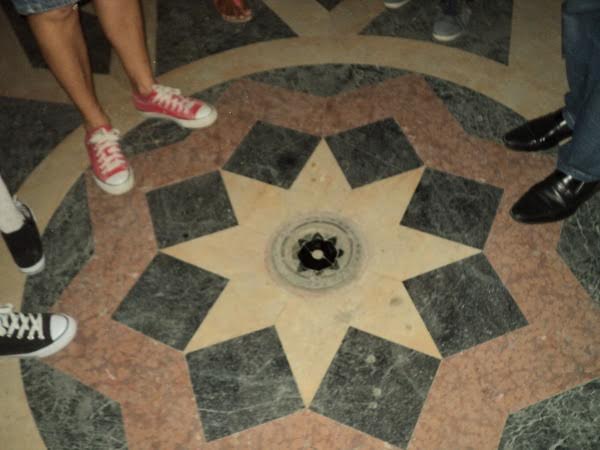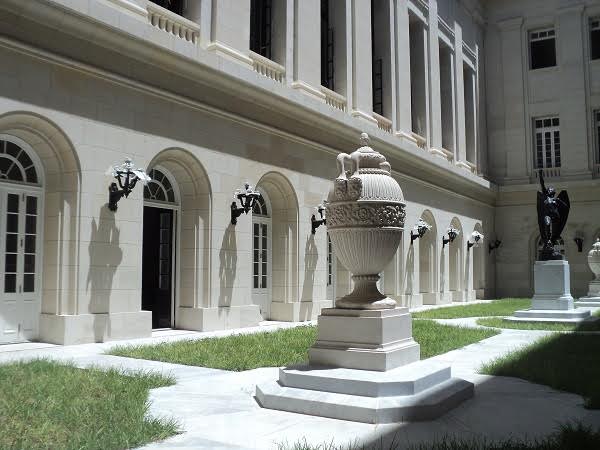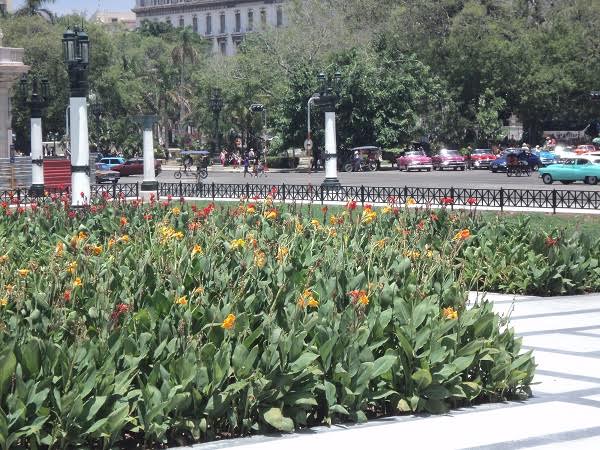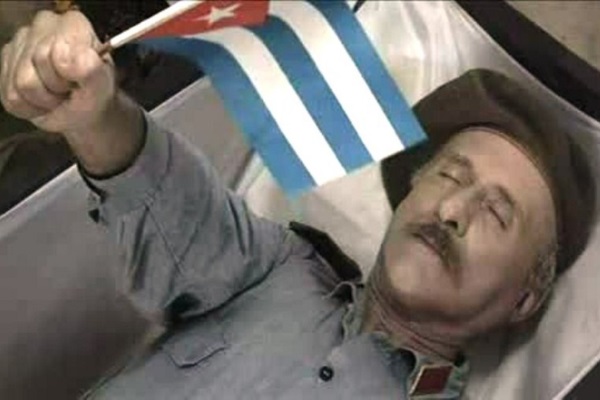After this brief summary, anyone unfamiliar with his work would say that he is “lucky,” but the larger truth is that he always earns what is most important: laurels from his readers. Life in prison is one of his recurring themes. Whomever starts reading his texts will discover this from the first line of many of his narrative pieces. It turns out that he was in prison twice, and in a ton of police stations. We talked for a long time about prison and his work, a few days ago at my house. And now, while transcribing our conversation, I learned why he was nominated by Reporters Without Borders to receive the Citizen Reporter prize that was just awarded to a group of Ethiopian bloggers.
JAP: Is this reflected in your book, “Men without Woman,” of Montenegro…
Angel Santiesteban: I think so. Being in prison helped me to have the spontaneity and sincerity literature requires. That candor always remains. So while I passed those two times through that hell, I was thinking about the stories I could find, and how it might serve my work. Thinking about finding material for writing saved me, made those difficult stretches less so.
JAP: Finding those stories …
Angel Santiesteban: I found them there and they were what saved me. Going to prison is like going to war. The prisoner and the soldier have a lot in common. Both are far from home. Both are incommunicado. Both have unmet sexual desires. Both are under a military command that can be abusive and can impose, many times, in a humiliating way. Every day you are in danger of losing your life; in prison at the hands of a criminal and in war you can be killed by the enemy.
JAP: It is there that you will find stories that will serve you later, but the truth is you didn’t go voluntarily to rummage through the prison and the behavior of the prisoners.
Angel Santiesteban: I went because they took me, forced me. The last time I went to prison because I believed, and I still believe, that I could do something to make my country better, to make it democratic. Fidel once said that a better world is possible, and I went to find this better world, to find this better Cuba. That cost me prison. Because I wanted to get this world, I started in my house, for this country I love. My literary teachers told me what was important was to write, that it was my work I should pay attention to, the first thing was to write, to publish, to get readers. Write, write and write. Many friends, and those teachers, thought that a writer doesn’t need to do anything else.
JAP: And do you believe it?
Angel Santiesteban: No, I do not believe it. That is a lie, but I believed it for many years. For a long time I devoted myself only to writing. I built a body of work, I published books and I remained silent… out of fear.
JAP: And where did you leave that fear?
Angel Santiesteban: It is still with me. It never left, but I learned to accommodate it. I never lost the fear of going to prison. There you could die in an instant, and this is terrible. Fear comes to me when I think I won’t be able to be with my children, with my family at the moment when they most need me. Imagining this moment makes a strong impression on me. It scares me to think about the possibility of their getting sick and not being able to help them. My daughter was at university when they arrested me the last time and that made me feel responsible
JAP: And who was responsible?
Angel Santiesteban: Viewed simply it should be me, but the real blame lies with those who arrested me. It was an unjust arrest and that was distressing. It was the possibility that her father was in prison again that made her sad, and so she decided not to go to school, so she missed class, so she had to justify her absence. I imagine how many times she thought she would have to go to the prison again to be with her father in his incarceration. Who really is to blame for her anguish. Me?
It makes me very happy that she is studying. I want her to graduate, and nourish her desires to study, but a young student will not feel very comfortable in the classroom knowing that her father is unjustly imprisoned. I’m also distressed when I see them come to the prison. To see boys of 17 or 18 visiting a prisoner is not comforting. My first incarceration had to do with accompanying my family to the coast when they wanted to leave the country forever. I ended up in prison but I didn’t have children. The last time they were grown and studying. The father of both of them was in prison for seeking democracy. And they knew what this could cost me.
JAP: What is democracy for you?
Angel Santiesteban: Saying what I think out loud and nobody is bothered. Saying what I like and everyone understands that this right exists and everyone joins us, and everyone understand that there are ideas different from the ideas of those in charge. Is it so difficult to understand this? I think it is good to converse, and the differences you have with those in power should not send you to prison. For me, that is democracy.
JAP: And are you prepared to converse to get this democracy?
Angel Santiesteban: Of course, that is what it’s about. I can converse with a Communist if he is able to listen to me with respect, if he allows me to act according to my assumptions. I have that right, although they have taken it from me I know I have it. I can also converse with a liberal. I can converse with those in power and those who oppose it even though we may not agree on everything. I just refuse to converse with those who foster terrorism. At this table I want to defend my right to express myself. If now I engage in political activity it is because I intend to find that democracy where everyone can coexist, even with their differences. I would love it if in the future it is said about me, if I am mentioned in a line, that is what it says.
JAP: And your writing?
Angel Santiesteban: I prefer to talk before the effort of engaging in the dialogue, about my dreams of democracy, that it be said that I confronted those who did not let me express myself. I want this, and it can be said very briefly, in just one line.
JAP: Just recently you were detained in a police station. Why?
Angel Santiesteban: Anything I could tell you would be conjecture, everything would be a supposition. I don’t have the truth. I think it was more than a threat, that they were trying to revoke my parole, to send me back to prison.
JAP: Why do you think so?
Angel Santiesteban: They told me there was an accusation from my ex-wife, the mother of my son. They showed it to me and I recognized her signature, but she told our son that she hadn’t accused me. They could have forged her signature to intimidate me. I haven’t seen her for a long time, so there was no threat, but later the (independent journalist) Maria Marienzo was at the station investigating, interested in me, and they said I was a prisoner because I broke in and burgled someone, however they told (Antonio) Rodiles the same thing they had said to me, that I had violated the domicile of the mother of my son.
They never agreed among themselves the reason for my detention. I believe, and this is a supposition, that it all had to do with a text I wrote the previous day, before being arrested, where I denounced the imprisonment of Lamberto Hernandez Planas, where I commented on his hunger strikes, the risks to his health, and also demanded his immediate release. Everything has to do with my political activities, with my opposition. I do not threaten anyone, much less did I break in and burgle someone.
JAP: What happened then?
Angel Santiesteban: After my son announced to me that his mother had not accused me, what I knew for sure was that they had arrested me, they stopped showing the alleged accusation of my ex. The next day I was taken to the provincial court. When we arrived, the police officers accompanying me wanted to know in which room the trial be held, and someone said to take me to an office. There I waited for the president of the court and she told me my freedom had been revoked. There was a brief silence and then she continued. She said that despite the revocation I would be set free, and suggested that I behave myself, that I must behave very well.
JAP: And do you think you could go back to prison?
Angel Santiesteban: Maybe, but I hope the pretext would be less crude than the one they used to imprison me last time. If they were less heavy-handed they might send me, if there were a next time, on a fellowship to Paris or Berlin. Never to prison. That is the worst thing you can do with a writer. Can you imagine what you could write there?
JAP: I don’t want to imagine it, it frightens me.
Angel Santiesteban: A writer will write everything he sees, everything serves him. A criminal will listen to other people’s stories and maybe it serves him to plan his next wrongdoing, but a writer analyzes every detail, every gesture, every story, and then he isn’t going to resist it, he is going to write it, and people are going to read it, to find out what happens there.
Being in prison is like walking through the guts of the country. Imagine the reader when he reads these putrid descriptions. Everything I saw fed this desire to write, to publish on my blog, to write stories, to do what I think is better for my country. I wrote a lot there. I wrote stories, from this stay in prison a novel emerged. From the stories they told me during those hours I spent in the police station, many narrative pieces could come. And there is also my blog. From there, I will continue recounting, without stopping, without them making me stop.
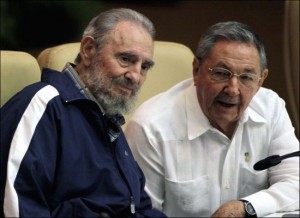 Cubanet, Luis Cino Álvarez, Havana, 11 January 2016 — I am a resentful person. I have to admit that, at least in this regard, the officials from State Security are correct, they who have condemned me as such during multiple, more or less menacing, interrogations throughout the past almost-20 years.
Cubanet, Luis Cino Álvarez, Havana, 11 January 2016 — I am a resentful person. I have to admit that, at least in this regard, the officials from State Security are correct, they who have condemned me as such during multiple, more or less menacing, interrogations throughout the past almost-20 years. About the Author: Luis Cino Álvarez (Havana, 1956) has worked as a professor of English, in construction, and in agriculture. He entered the field of independent journalism in 1998. Between 2002 and the spring of 2003, Cino was a member of the reporting team at De Cuba magazine. He is assistant director of the online magazine, Primavera Digital [Digital Spring], and is a regular contributor to CubaNet since 2003. A resident of Arroyo Naranjo, Cino dreams of being able to make a living from writing fiction. He is passionate about good books, the sea, jazz and blues.
About the Author: Luis Cino Álvarez (Havana, 1956) has worked as a professor of English, in construction, and in agriculture. He entered the field of independent journalism in 1998. Between 2002 and the spring of 2003, Cino was a member of the reporting team at De Cuba magazine. He is assistant director of the online magazine, Primavera Digital [Digital Spring], and is a regular contributor to CubaNet since 2003. A resident of Arroyo Naranjo, Cino dreams of being able to make a living from writing fiction. He is passionate about good books, the sea, jazz and blues.
